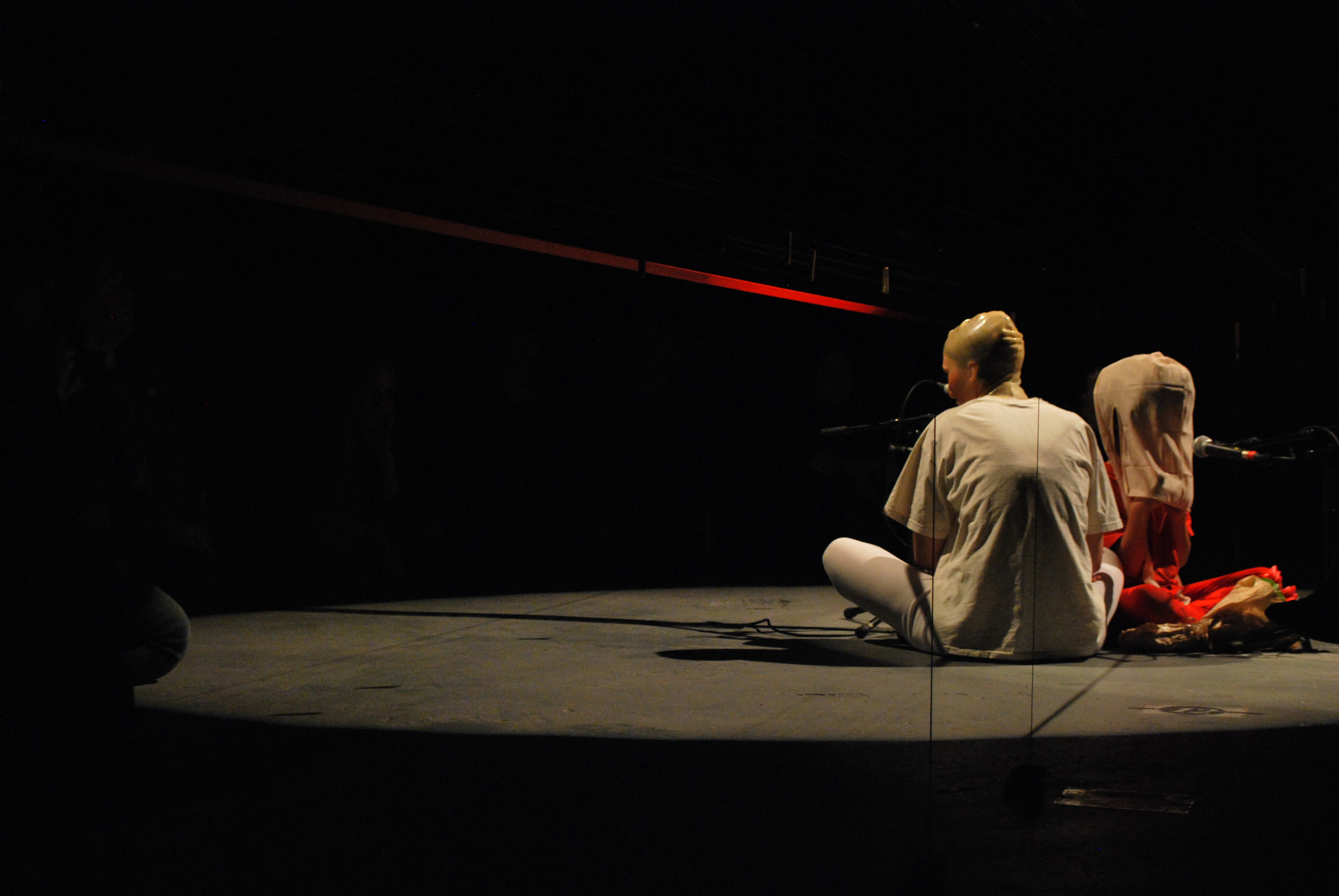Spreading a festival over seven murky London nights is an ambitious move. Not only is it near-impossible to attend every single event, but one also gets an overbearing sense that the programme will wear itself thin over the week. Not so. Even though some work photographed better than it sounded and certain performances engaged the audience more than others, the curatorial team of the London Contemporary Music Festival succeeded in collating one of the most interesting programmes of contemporary art and music this year has seen.
For the duration of its tenure, the LCMF was housed at Baker Street’s Ambika P3 Gallery. This grand, subterranean warehouse sits deep inside the University of Westminster. Londoners on their homeward commute would be hard-pressed to find any evidence of a music festival happening right beneath their feet. Originally built as a concrete construction hall for the university’s engineering department, this vast 14,000 square ft. room proved to be the prime location in which to experience some experimental music. Soft, quiet pieces were amplified by the reverberant space, while louder works sat heavy in the air, like thoughts of an impending natural disaster.

Each day was loosely themed and each theme helped to contextualise the performances. Most of which were challenging, to say the least. The festival opened up with Edward Henderson’s Tape Piece (2014), in which a handful of performers slowly unwound rolls of sticky tape around the gallery. This simple, interventionist work confounded the audience into silence. Nobody knew whether to applaud when Henderson’s cicada-like run-out grooves ceased to bounce around the room. Many pieces followed this one, but it was certainly one of the highlights of the festival.
In between sets of inviting, but rather generic laptop noise-music, one was presented with a wealth of exclusive premiers. Neil Luck’s Via Gut (2015), for example, took dada expression into post-digital gastro-linguistic territory. What starts off as incoherent nonsense, soon unfolds into a lesson in evolution. “Once upon a time, humans evolved into tapeworms and reconnected with the human colon,” stated the frenetic narrator. This piece, along with Anne Bean’s and Richard Wilson’s highly gestural and brilliantly orchestrated piece, NALEMAG (2015), demonstrated that avant-garde tendencies do not always have to be overburdened with solemnity; art can be entertaining too.

For the first few days, LCMF’s self-confessed “labyrinth of mutable formations” was divided in two by Ellen Fullman’s Long String Instrument. In constant development since 1979, Fullman’s 50-ft installation converted the entire warehouse into a droning grand piano. Brushing her rosin-coated fingers across the instrument’s myriad strings, Fullman seemed to embody The Watch Reprise (2015) with minimalist theatrics. Fullman’s piece took on a very formalist, temporal dimension. Time began to lag, almost standing still, with the collective reverie only occasionally being broken by a falling beer bottle or camera shutter click.
The unassuming star of the festival was Aisha Orazbayeva. The Kazakh-born violinist performed on at least four separate occasions, appearing first beside Tim Etchells, performing the musical accompaniment to his troubling, but comic poem, Seeping Through (2015). She also contributed the violin parts to Ezra Pound’s Le Testament de Villon (1926), performed solo for a rendition of Helmut Lachenmann’s Toccatina (1986) and recited Vladimir Mayakovsky’s futurist poem A Cloud In Trousers (1914), in its original Russian version. (Sadly, the recitals were met with indifference from the audience, despite a translation sheet having been provided.)

It really felt, however, that the principal reason everyone came to the festival was for Chris Watson’s premier of Okeanos (2015). Commissioned by the LCMF, Watson’s grandiose piece combined various underwater recordings into a truly immersive submarine excursion. Recorded with hydrophones, the hour-long track begins in the Antarctic summer, before moving north-east, across the Atlantic, towards our shores and beyond. Any similarities to those cheesy whale song compilations are quickly dispelled, as the audience is submerged under a blanket of diverse and curious sounds. Watson’s Okeanos evokes the notion of deep listening: a visceral engagement with sound that abandons visual narratives, in favour of a tender embrace with vibration.
There were few actual failures on the programme, but certain works definitely drew their ideas from the concept of failure. The quiet tenacity of David Toop’s Many Private Concerts (2015) disappeared slowly into the clamour of the crowd, as was probably the intention. This brought to attention our inability to access the subtle, in an environment where absurdly copious amounts of information compete for space. Andrew Hamilton’s brilliantly tense and complex piece, Music For People Who Like Art (2009), takes its inspiration from digital fatigue. The chamber orchestra battled through abrupt, repetitive phrases in their attempt to imitate a broken CD. The effect was akin to being trapped in a collapsing mineshaft, with your corrupt, static lungs grasping selfishly for air.

Being acutely aware of the insufferable boredom that a bourgeois concert hall can inflict on its clientele, the curators of this festival ensured that there was never a fixed vantage point. When one performance would finish, another would begin on the opposite side of the room or on the steel staircase, or somewhere else entirely. The cue would be given by the minimalist, but playful lighting, illuminating a dark and unfamiliar corner.
This year saw the third outing for the festival and one hopes sincerely that it won’t be their last. You might not find everything here to your taste, but each work is carefully selected for its experimental and thought provoking nature. The LCMF, and other events like it, work in antithesis to the prevalent modern notion that music has no value. Music does have value, it enriches our lives by engaging our emotions and intellectual faculties. Good music is daring and it dares us to listen.
The London Contemporary Music Festival ran from 11-17 December 2015. For more information, please visit the festival website. All photography by the author.













please keep me informed of future 2016 dates & programmes
I am sad to have missed your diverse, rare and fascinating events